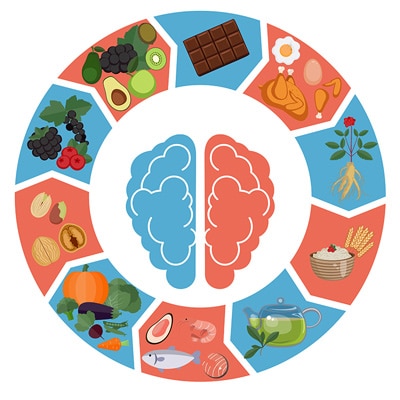Fasting: Is it Good For You?
Does your stomach flip when you think about fasting?
Do you get dizzy and start sweating (because your sugar just dropped while thinking about it), and then you’re craving every food that comes to mind.
Okay, so that’s a little exaggerated, but the thought of no food may get your heart racing a little.
These days we are so SPOILED!
We really are — especially here in the United States.
Anything you want, at any time of the day you can have it.
Heck, we have access to apps on our phones that enable us to have food delivered to us — without calling anyone or going anywhere.
It wasn’t always like this though.
Imagine being in your village, gathering fruits or sharpening your weapons to go on a hunt. You didn’t plant food, you scavenged or fought for it.
We have never had food so readily available to us.
What we now refer to as ‘fasting’ was actually just a normal way of life. Our bodies were built to sustain that lifestyle, so it really isn’t as difficult as we make it out to be.
Just because our bodies are able to handle it, does that mean that it’s a healthy option?
Read on to find out how healthy it actually is — or isn’t.
What is Fasting?
So what exactly is fasting?
Webster’s dictionary defines it as “to eat sparingly or abstain from some foods.”
This definition helps you to understand that you aren’t going completely without food.
Most fasts nowadays permit eating at some point throughout the day and you are still allowed to drink at the very least water and sometimes tea or coffee — depending on how strict you are and your purpose for the fast.
Different reasons for fasting can include political, religious, or health-related goals.
Originally the main focus with fasting was spiritual.
Grecians used it in preparation for rituals so evil spirits didn’t affect them on their spiritual journeys.
Christians use it in observance of Christ and his 40 days of fasting in the desert.
Monks use it as a form of self-discipline and to please their god.
Recently, it has become a dieting structure to help combat fat and common health conditions.
Disclaimer: The information in this article is not to diagnose, treat, or cure any conditions.
This article is strictly informational and should not supersede any advice given to you by a medical professional. Always speak with your doctor before beginning any new regimen.
How to Fast
When working on how to go about fasting, you’ll want to choose a fasting structure.
There are several ways you can fast.
- Intermittent Fasting (IF) – IF is done several different ways.
The most common two ways include:
-
- Alternate-Day Fasting (ADF) – eating as much as you normally would one day and not eating at all the next for between 12-24 hours.
- Alternate-Day Modified Fasting (ADMF) – eating as much as you would normally one day and eating up to no more than 25% of your normal caloric intake the next day.
- Calorie Restriction (CR) – The number of calories you consume are reduced anywhere from 20-40% over a period of time.
- Time-Restricted Feeding (TRF) – Instead of focusing on how many hours you can’t eat, this choice of fasting focuses on a short time frame (typically between 4 and 12 hours) where you are able to eat what you want.
How Fasting Can Affect Your Body — Is It Worth It?
Fasting For Your Brain
Fasting causes a ‘switch’ to be turned in your body.
Instead of our normal glucose derived energy, our body uses free fatty acids and ketones to maintain its energy.
These forms of energy focus on preserving your brain and muscle cells which has been shown to maintain muscle mass and high brain cognition in states of starvation.
This is why your brain and muscles are the only organs that don’t ‘shrink’ after periods of fasting/starvation.
There have been some studies done to test the effects of fasting on the brain of animals and few on humans alike.
The results were fascinating at the very least.
In one animal study the amygdala, hippocampus and prefrontal cortex (3 different parts of your brain) were all increased in size after fasting.
Anti-aging effects on the brain have also been noticed.
Synaptic plasticity is your brain’s capability of remembering and learning new information.
Synaptic plasticity is enhanced by fasting— which, in turn, has a positive effect on memory and learning.
Brain-derived neurotrophic factor (BDNF) levels decrease when your synaptic plasticity is compromised. With neurodegenerative diseases, both of these are affected negatively.
BDNF is highly responsible for generating new brain cells (neurogenesis). New brain cells mean a better functioning brain!
One of the most commonly known neurodegenerative diseases is Alzheimer’s disease.
The progression of Alzheimer’s disease has been shown to be slowed down and in some cases prevented by periodic or intermittent fasting.
BDNF also helps maintain healthy levels of insulin and glucose throughout the body which can help with diabetes mellitus.
Although, fasting for diabetes seems to be more effective in men than in women.
More studies must be done to ensure the effectiveness and proper implementation of fasting for brain health, however, it does look promising as a way to prevent neurodegeneration.
Fasting For Your Gut
A recent article we published, touched a bit on this subject.
However, we would like to go a little more in depth for your now.
By not eating, your stomach is able to push a reset button of sorts.
When you aren’t constantly eating, your body is able to cleanse itself of unnecessary items that are trying to hang around.
Your body has an internal or biological clock called your circadian rhythm. Everything in our lives can have major impacts on this clock.
Something as small as using lights in our houses can throw it off, so imagine what the food we do or don’t intake does to our circadian rhythm.
If we do push this reset button on our gut by not eating, our cells start a process called autophagy (self-eating) that clean out all the bad bacteria and gook that is making our stomachs not feel so great.
Your cells eat up all the dead/damaged portions and dispose of them.
They sort of become vacuum cleaners to remove excess, unwanted parts to be thrown away.
When you are constantly eating, it’s as if you’re trying to unclog your toilet, and as you’re plunging someone keeps throwing things in there.
It will never become unclogged and clean. Our stomach and digestive tract are the same way.
It was found in one animal study that intermittent fasting or diets that mimic fasting helped with gut microbiota reconstruction.
Fasting helps with gut microbiota because it allows for your internal clock to get back on track.
If you stop eating earlier in the afternoon it gives your digestive system enough time to do its job.
Time-restricted feeding —a form of fasting— lets your body know that the day is winding down and that it is time to conserve your energy.
This is the reasoning behind how you have more energy and are more productive earlier in the day than the evening.
Common Conditions — Will Fasting Help or Hurt Them?
Fasting for Diabetes:
- Periodic Fasting can positively affect those who are pre-diabetic or have lower risk diabetes by:
- Increasing insulin sensitivity
- β cells that had begun to deteriorate stop deteriorating
- Ridding your liver of glycogen
- Increasing ketone production
- Extended fasting (those similar to Ramadan) can negatively impact diabetes. Those who are diabetic and fast for long periods of time are exposing themselves to higher risks of:
- Hypoglycemia
- Hyperglycemia
- Dehydration
- Blood clots
- Diabetic Ketoacidosis
If you plan on doing a fast or are considering it as a way to help out your diabetes, please consult with your doctor so a good regimen can be created for you.
Fasting for Cancer:
Periodic fasting and alternate day fasting have both been shown to have positive effects on cancer.
Fasting anywhere from 1 to 3 days a week has had positive benefits in animal testing with cancer.
-
- Cancer cells were unable to become protected leading to cancer cell death
- Chemotherapy treatment became more effective when used with fasting regimens
- Cancer-free survival chances are increased by up to 60% when fasting while receiving chemotherapy (doing either alone aren’t as effective at killing cancer cells)
Many more studies need to be done to ensure the effectiveness of fasting for cancer treatment.
Some problems can arise and need further study to weigh the risks and benefits.
-
- During the refeeding process, it was found in one study that the cancer cells were also refed and therefore had a stronger chance to grow
- With weakened immune systems and low energy intake, there is a greater chance for infections
High Blood Pressure:
A study was done on patients who had a blood pressure of 140/90 or higher.
During the study, they had a pre-fast period of only fruits and vegetables for 2-3 days and a fasting period of 10-11 days of only water intake.
All subjects were found to have a normalized blood pressure that continued even after the refeeding period.
This was all done under doctor supervision.
More studies need to be done, but it is looking as though fasting could be a great alternative to antihypertensive drugs.
How Fasting Can Be Bad for You
There is no denying that there are a TON of great effects fasting can have for our bodies — especially those of us in countries with growing numbers of obesity and other diseases related to poor diet.
However, this article is to help you understand all aspects of fasting — the good, the bad, the ugly, and the dangerous.
Fasting and Infertility
Women’s bodies are made up differently than men — hence childbirth.
This means that women and men both need different amounts of macronutrients and micronutrients alike.
If women don’t get enough of these her health can be severely impacted.
This isn’t to say that women shouldn’t fast.
This is just to simply state that a woman should be much more careful when fasting and listen to what her body is telling her.
I’m sure you’ve noticed that a woman’s body holds on to fat much longer than her male counterpart’s body does. This is because their bodies need the extra fat to maintain regular menstrual cycles.
Fasting for women can alter hormone levels.
Hormone levels have a huge impact on whether a woman can conceive or not. A low caloric intake leads to irregular menstrual cycles and potential infertility.
Women’s bodies switch over to a more manly function when in starvation states.
They become more attentive, hairy, and need less sleep.
Most women do complain of inability to sleep, thrown off menstrual cycles, and extreme anxiety during fasting periods.
While men’s bodies were created to deal with this type of situation, women’s bodies were not.
So if you are a woman, and trying to conceive or want to in the future, fasting may not be the best diet choice for you.
Dangers of Fasting
While it is uncommon, there is a condition known as refeeding syndrome that takes effect in those who are severely malnourished and then begin eating again.
This usually affects people who suffer from anorexia nervosa.
Unfortunately, fasting can harbor similar traits to anorexia nervosa depending on the length of the fast.
Depleted amounts of electrolytes mainly phosphorus, magnesium, and potassium — there are others that are extremely important, but these are the most important with refeeding syndrome — are typically how it is diagnosed.
Once these levels start picking back up, your body can begin to retain water which causes major heart problems.
If not taken care of, this can lead to extreme organ damage or even death.
This is why it is so important to talk with your doctor before beginning a fasting program.
These levels —and many others— should be checked before the fast and during depending on the type and duration of fast you choose.
Also, the obvious aspect of going extended periods of time without food can lead to malnourishment and death.
Keeping Your Gut Happy During Your Fast
Even though a fast is refraining from food, you can still intake supplements that don’t offer energy (i.e. water, medications, vitamins, etc.)
Taking prebiotics, like Atrantil, will help to keep your microbiome happy and healthy while you are working on the rest of your body with your fast.
Atrantil helps your fast by continually nourishing your microbiome.
Remember that ‘vacuum-like’ cell process I talked about earlier?
They do a great job of cleaning up your bad bacteria —but just like a real vacuum cleaner can sweep up your favorite earrings— they can rid your gut of healthy bacteria as well.
Remember to always consult with your primary care physician before starting any new supplementation or fasting regimen to make sure it is the right step for your health.
Do you think fasting is for you?
Have you fasted before?
Let us know your thoughts and experiences in the comments below!
To recap if fasting is good for you watch our video below:
https://www.ncbi.nlm.nih.gov/pmc/articles/PMC1274154/
https://www.ncbi.nlm.nih.gov/pmc/articles/PMC3518570/
https://www.ncbi.nlm.nih.gov/pmc/articles/PMC4697050/
https://atrantil.com/to-fast-or-not-to-fast/
https://www.ncbi.nlm.nih.gov/pmc/articles/PMC6245873/
https://www.ncbi.nlm.nih.gov/pmc/articles/PMC5783752/
https://www.diabetesresearchclinicalpractice.com/article/S0168-8227(17)30338-8/fulltext
https://www.ncbi.nlm.nih.gov/pmc/articles/PMC3946160/
https://www.ncbi.nlm.nih.gov/pubmed/11416824/


